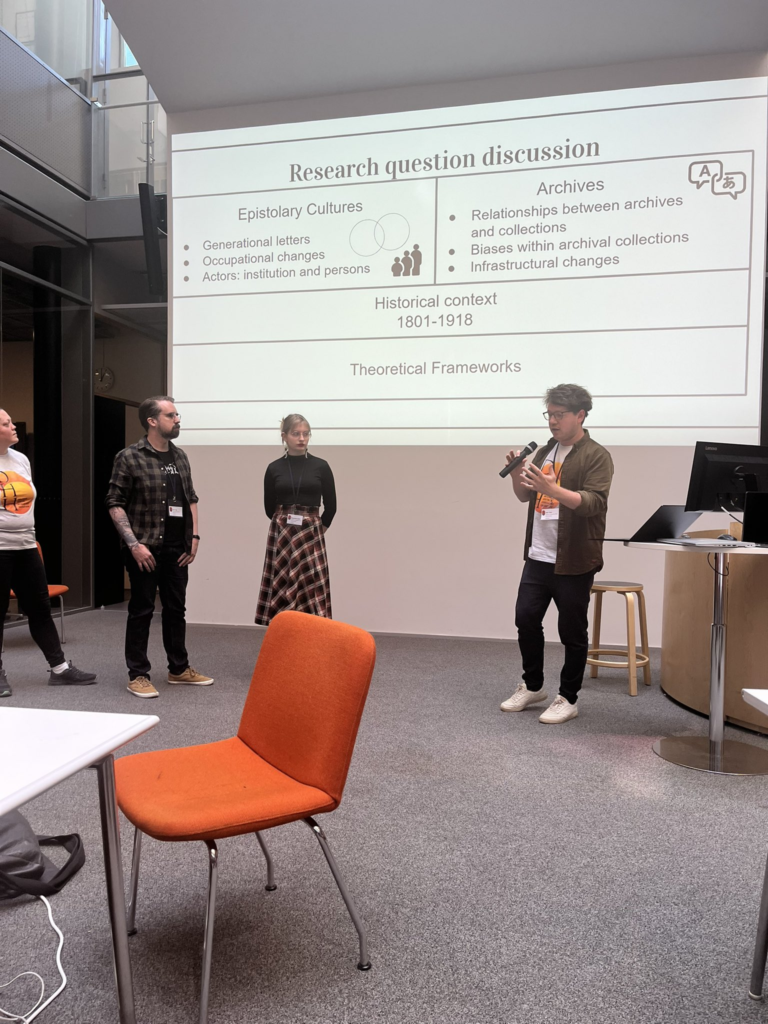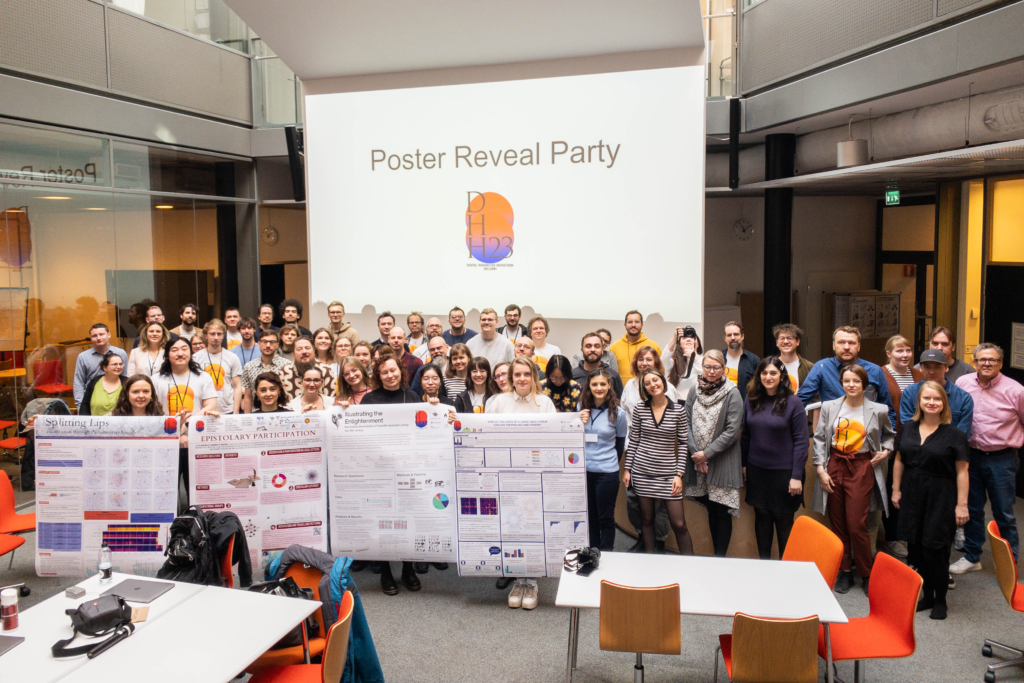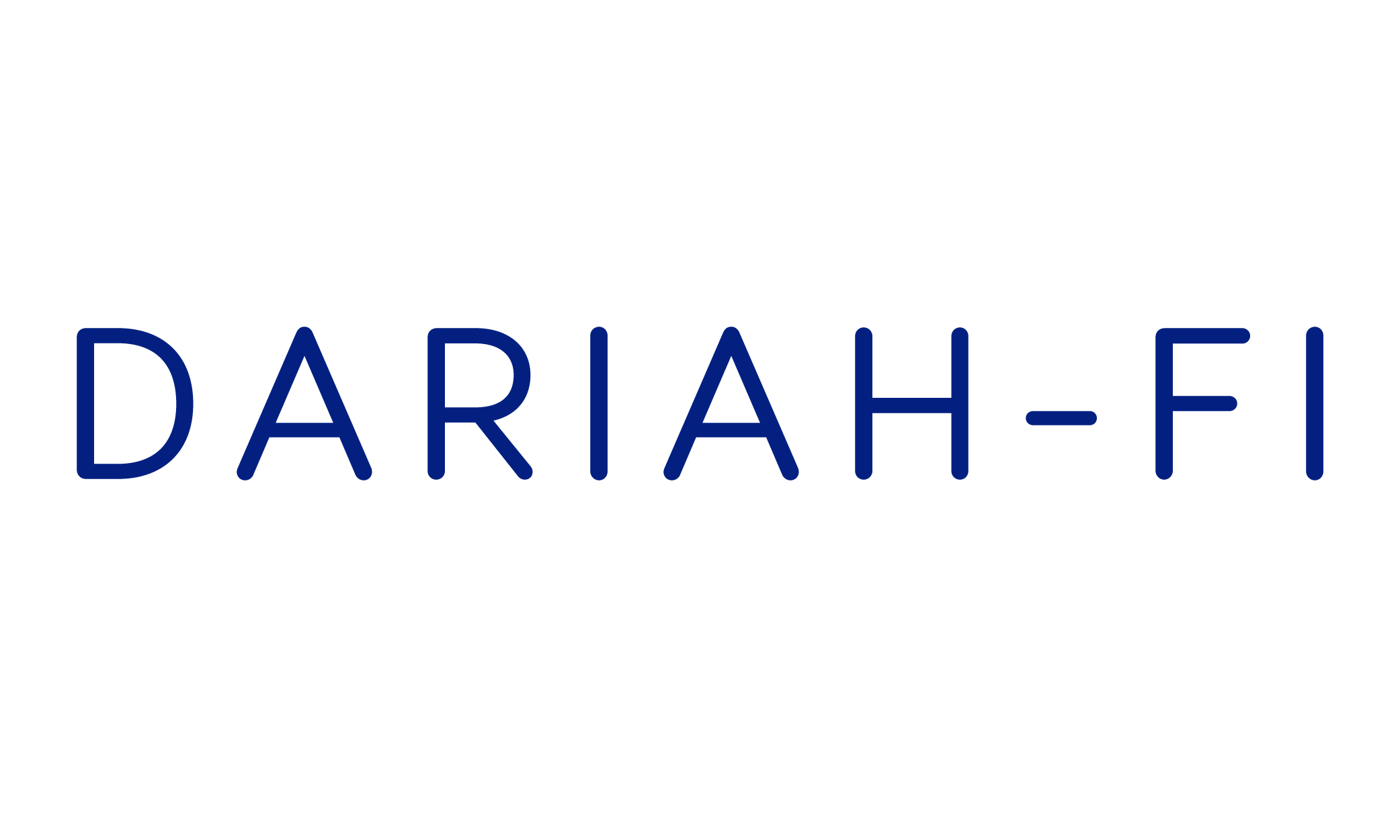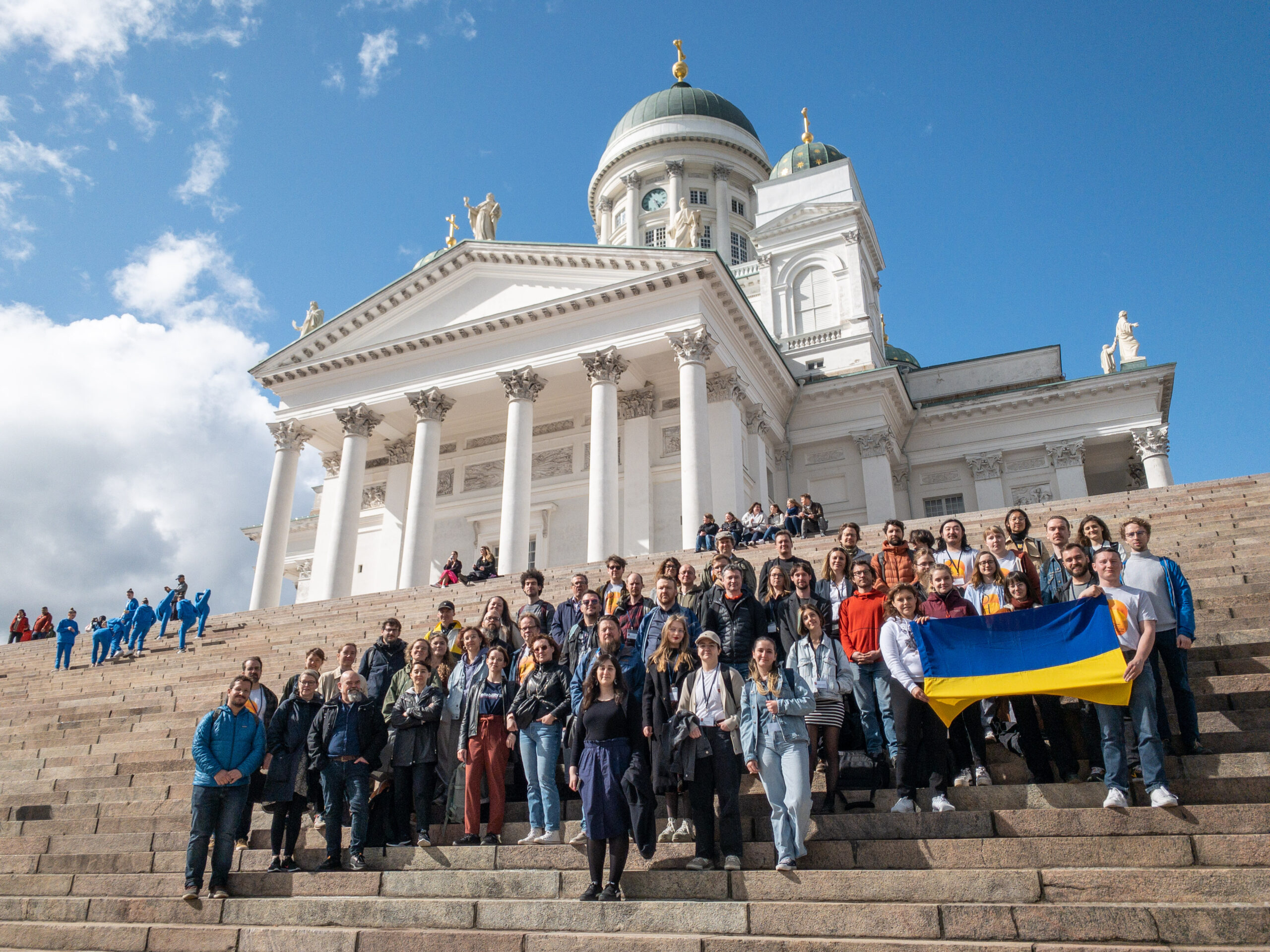Hi everyone! Elias here (as per usual). I hope the summer has gone splendidly for you all! We at DARIAH-FI have been working hard on several different projects that will be gradually unveiled, so please look forward to that! In the meantime, I would like to reminisce about an important event that happened in May/June of this year, which is the Digital Humanities Hackathon 2023 in Helsinki, or DHH23 for short. While it has been several months since it has happened, we decided that summer is for resting, and not for writing and reading blogs about academia! Therefore, the beginning of the academic year is the perfect time to talk about the Hackathon.
So, what in the world is the Digital Humanities Hackathon? You might have heard this name being tossed around in digital humanities spaces in Finland, but the name itself does not tell one much. To introduce it shortly, the Digital Humanities Hackathon in Helsinki is a 10 days long interdisciplinary event that involves groups of students from all over the world in an intensive process of creating a digital humanities project based on specific prompts and datasets. The 2023 Hackathon was its 8th iteration, and was sponsored by CLARIN and DARIAH as a summer school. We had nearly 50 participants from 13 different countries and of various backgrounds take part in the event, which is an incredible amount and shows the growing interest in digital humanities as a whole.
But I believe statistics are secondary to people’s personal experiences and feelings, so I would like to talk about the event from my own perspective as a participant. As a first year master’s student, I have never done such an event before – my bachelor’s degree didn’t include much involvement in research projects. Applying for the Hackathon was throwing myself into deep water – I had only an inkling of an idea of what happens during the event, but I wanted to learn and challenge myself; the digital humanities world has been all about learning and experiencing new things, so this fit the bill perfectly.
The first challenge – I was assigned to the group that focused on epistolary exchanges, particularly based on metadata. It isn’t that I didn’t want to be there – it was one of my top choices – but I was absolutely clueless on the specifics! This theme was wildly different to anything I have done before, and I was eager to learn, but unsure whether I would be able to truly grasp everything about letters, metadata and how it can be used in digital humanities research. However, the other members of my team, as well as our team leaders helped me out a lot during this entire ordeal, and I managed to not only be an integral part of the group, but I also learned a lot about the topics and processes at hand.

The second challenge was scheduling. When you only have 10 days (or rather, 7 days of actual work), multiple people and many different ideas, it becomes incredibly hard to move forward with tasks. Everyone has a different way of working and becoming aware of that as well as adjusting can be daunting. It is essentially a much more intense and enhanced group project, and even those can be difficult to manage. There were moments during the Hackathon when I was really stressed over whether we will be able to finish what we’re doing and present it to the remaining groups and organizers. One thing it has taught me is that you need huge amounts of patience and also level-headedness. Working in a stressful environment can happen at many times during the research process, and one has to learn how to adjust to it and go forward.
I think the third, and possibly biggest challenge for me, was… trying to believe in myself and the project. It might seem like your findings won’t be significant, or that you didn’t really do a good job explaining yourself, or finding the right materials, or using the right algorithms. It all might seem a bit purposeless at times. But I want to say that everything done and made in the Hackathon, and all the experiences, those are the most valuable things you can get. No amount of work done is insignificant, everyone contributes in their own way, with the skills and tools that they know. So do not lose hope in yourself and what you can do, because everything matters, every little part of the project makes up the entirety of it, and all contributions are deemed valuable.

That was already quite a bit of text! But if I can give any advice to future Hackathon participants, then I only want to say one thing – just go for it if you have even the least amount of interest. An opportunity like this is one in a million, and it is an incredible experience, filled with knowledge, hard work and amazing people who are there to help you and bring out the best of your abilities. At times I was doubting myself, yes, but by the end of the event, when we revealed our posters and gave our final presentations, I thought to myself that wow, this was so worth it, I would love to do it again.
If you’d like to read more about this year’s Hackathon specifics and see our posters, check out this round-up by Amelia McConville on DARIAH-EU and be on the lookout for future iterations!

